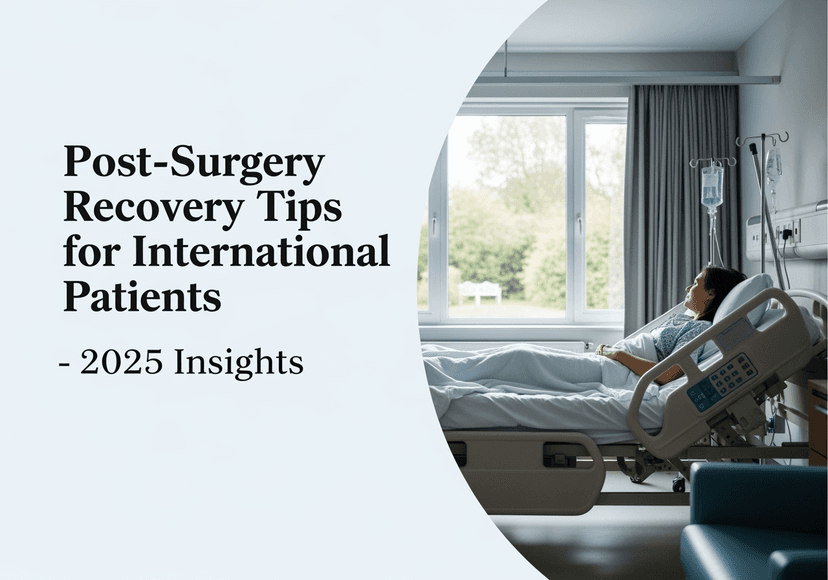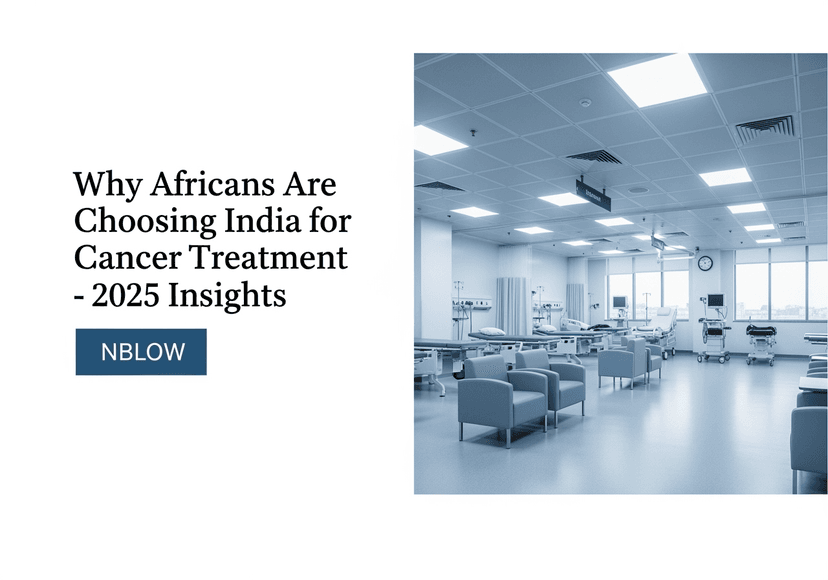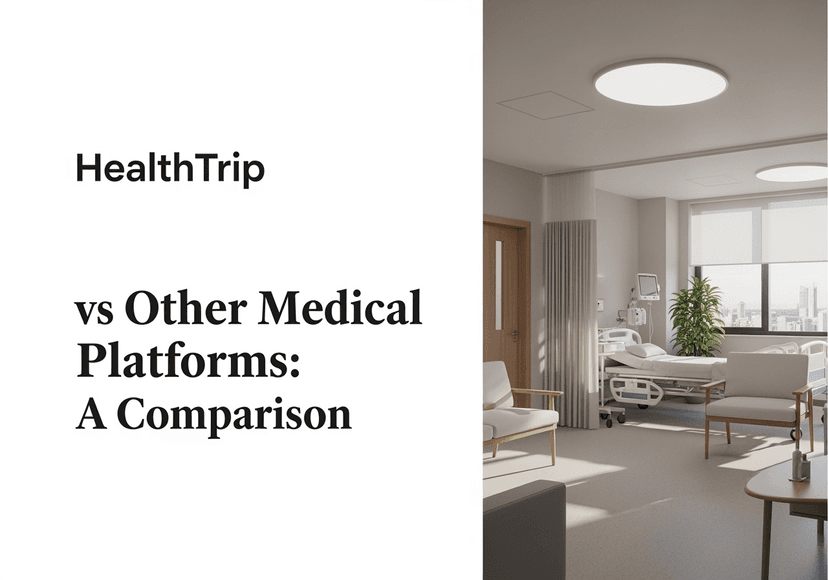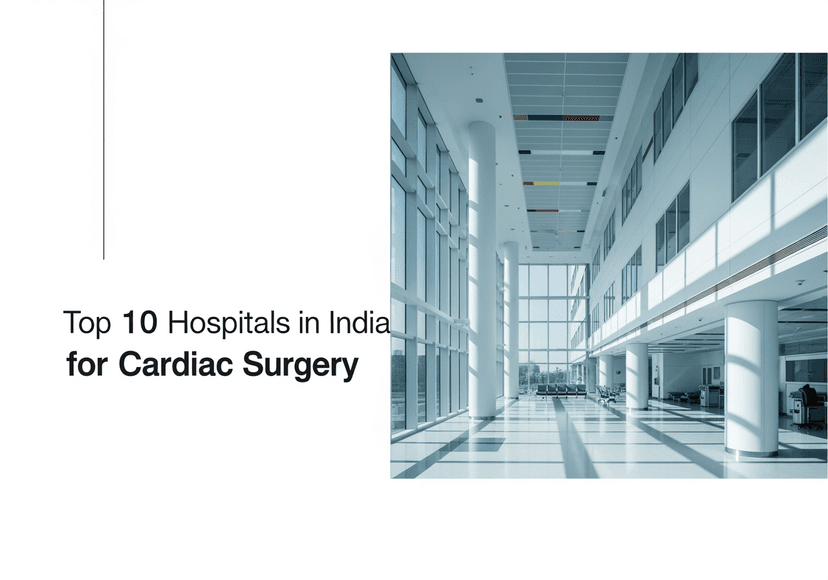
Reproductive Surgery and IVF-ICSI in the UAE: What to Expect
16 Oct, 2023
 Healthtrip
HealthtripIntroduction
Reproductive surgery and In Vitro Fertilization (IVF) with Intracytoplasmic Sperm Injection (ICSI) have revolutionized the field of reproductive medicine, offering hope to couples struggling with infertility. The United Arab Emirates (UAE) is a hub for advanced medical services, including reproductive treatments. This article explores what to expect when undergoing reproductive surgery and IVF-ICSI in the UAE.
1. Reproductive Surgery in the UAE
Reproductive surgery is a crucial component of infertility treatment. It addresses anatomical issues in the male or female reproductive systems that can impede natural conception. In the UAE, reproductive surgery is performed by highly skilled and experienced gynecologists and urologists, often in state-of-the-art facilities.
Most popular procedures in India
Expertise and Technology
In the UAE, you can expect access to world-class medical expertise and cutting-edge technology. The country has invested heavily in healthcare infrastructure, attracting highly skilled medical professionals from around the world.
Multilingual Support
Given its diverse expatriate population, the UAE offers medical services in multiple languages, ensuring clear communication between healthcare providers and patients.
Wellness Treatments
Give yourself the time to relax
Lowest Prices Guaranteed!

Lowest Prices Guaranteed!
Cultural Sensitivity
UAE healthcare providers are sensitive to cultural and religious differences, respecting patients' beliefs and values throughout their journey.
Privacy and Confidentiality
UAE medical facilities prioritize patient confidentiality, ensuring that your fertility journey remains private.
Supportive Environment
UAE fertility clinics often provide comprehensive support, including counseling, emotional assistance, and guidance through the process, helping couples cope with the emotional aspects of infertility.
2. Common Reproductive Surgeries in the UAE
Hysteroscopy and Laparoscopy
Hysteroscopy and laparoscopy are minimally invasive procedures offered in the UAE to evaluate and treat a range of conditions that can impact fertility. These procedures provide a closer look at the reproductive organs and are equipped with advanced technology for precision.
- Uterine Fibroids: Hysteroscopy and laparoscopy can identify and treat uterine fibroids, which can obstruct fertility. Surgeons can remove or shrink these growths, improving the chances of conception.
- Polyps: In cases of polyps in the uterus, these procedures allow for their removal, addressing potential barriers to conception.
- Endometriosis: Hysteroscopy and laparoscopy are crucial for diagnosing and treating endometriosis, a condition where tissue similar to the uterine lining grows outside the uterus, often leading to fertility issues.
- Tubal Blockages: These procedures can reveal and potentially address tubal blockages, which can hinder the movement of eggs and sperm, impacting fertility.
Myomectomy in the UAE
Myomectomy is a surgical procedure performed in the UAE for the removal of uterine fibroids. UAE surgeons have honed their skills in performing myomectomies while preserving fertility whenever possible. This procedure ensures that women with fibroids can retain their reproductive capabilities.
- Uterine Fibroid Removal: Myomectomy allows the precise removal of uterine fibroids, a common cause of fertility issues. The surgery aims to improve the likelihood of natural conception.
- Preserving Fertility: UAE surgeons are adept at preserving the integrity of the uterus during myomectomy, which is crucial for maintaining a woman's fertility.
Tubal Surgery in the UAE
Tubal surgery is another reproductive procedure available in the UAE for women with blocked or damaged fallopian tubes. This type of surgery employs microsurgical techniques to increase the chances of natural conception.
- Fallopian Tube Repair: Highly trained surgeons in the UAE specialize in repairing or reconstructing fallopian tubes that are blocked or damaged. This can restore the pathway for eggs to meet sperm, increasing the potential for natural conception.
- Microsurgical Expertise: UAE medical professionals are skilled in using microsurgical techniques that enable delicate repairs to the fallopian tubes, optimizing their function and the chances of successful conception.
3. Preparing for Reproductive Surgery in the UAE
Diagnostic Evaluations
Before undergoing reproductive surgery in the UAE, thorough diagnostic evaluations are essential. These assessments are designed to identify the underlying causes of infertility and determine the most appropriate course of action.
- Medical History: Your healthcare team will review your medical history, including any previous pregnancies, surgeries, or medical conditions that may affect fertility.
- Physical Examination: A comprehensive physical examination will be performed to assess your overall health and identify any physical factors that may be contributing to infertility.
- Imaging and Testing: Diagnostic imaging such as ultrasound and specialized tests like hysterosalpingography may be conducted to evaluate the condition of your reproductive organs, including the uterus, fallopian tubes, and ovaries.
Consultation with Specialists
Consulting with reproductive specialists in the UAE is a crucial step in preparing for surgery. These specialists will discuss the surgical procedure, potential risks, and benefits, and address any concerns you may have.
- Choice of Procedure: Based on the diagnostic evaluations, your healthcare team will recommend a specific surgical procedure tailored to your condition. This decision will be explained to you in detail.
- Recovery Plan: You will be provided with a comprehensive plan for your post-operative care, including information about the recovery process, potential discomfort, and any limitations on activities.
Psychological and Emotional Support
Infertility and undergoing surgery can be emotionally challenging. In the UAE, healthcare providers recognize the importance of emotional support during this journey.
- Counseling: Many fertility clinics in the UAE offer counseling services to help individuals and couples cope with the emotional aspects of infertility and the stress associated with surgery.
- Support Groups: Joining support groups can be a valuable resource to connect with others who are going through similar experiences. The UAE has a range of support networks for infertility patients.
Logistical Planning
Practical considerations are essential when preparing for reproductive surgery in the UAE.
- Scheduling: Plan the timing of your surgery carefully to accommodate your personal and professional commitments. Be sure to account for the necessary recovery period.
- Travel and Accommodations: If you are traveling to the UAE for surgery, arrange your travel and accommodations well in advance. Many fertility centers in the UAE can assist with these arrangements.
- Financial Considerations: Understand the financial aspects of the surgery, including costs, payment methods, and potential insurance coverage. Some facilities offer packages that may be cost-effective.
Lifestyle and Health Preparations
Your healthcare team will provide specific guidance on lifestyle and health preparations, which may include:
- Medications: Follow any prescribed medications or supplements as directed to prepare your body for the surgery.
- Diet and Exercise: Maintain a healthy lifestyle, which can help optimize the chances of a successful surgery and recovery.
- Avoiding Smoking and Alcohol: If applicable, refrain from smoking or excessive alcohol consumption, as these can negatively impact surgical outcomes and overall health.
4. The IVF-ICSI Process
- Ovulation Stimulation: In the UAE, patients will receive medications to stimulate the ovaries and increase the number of mature eggs available for retrieval.
- Egg Retrieval: Once the eggs are ready, they are retrieved through a minimally invasive procedure performed under anesthesia.
- Sperm Collection: Sperm samples are collected, and the best-quality sperm is selected for ICSI.
- Fertilization: The selected sperm is injected directly into the egg, allowing for more controlled fertilization.
- Embryo Culturing: Embryos are cultured and monitored in a specialized incubator.
- Embryo Transfer: High-quality embryos are transferred into the woman's uterus, with the hope of implantation.
5. Cost of Reproductive Surgery
The average cost of reproductive surgery in the UAE is around AED 10,000 to AED 50,000 or more, depending on the type of surgery required.
Reproductive surgery in the UAE can vary significantly in cost depending on the type of surgery, the complexity of the procedure, and the healthcare facility chosen. The cost typically includes various components such as:
1. Surgeon's Fees: This includes the fees of the medical professionals who perform the surgery.
2. Hospital or Clinic Charges: These charges encompass the use of the facility, including operating rooms and equipment.
3. Anesthesia Fees: If anesthesia is required, this cost is a part of the overall expense.
4. Pre-operative and Post-operative Care: Costs for diagnostic tests, consultations, and post-operative follow-up appointments.
5. Medications: Depending on the surgery, patients may need to purchase medications, either for pain management or recovery support.
It's essential to get a detailed breakdown of the costs from the chosen healthcare facility in the UAE. Discuss the costs with your healthcare provider and clarify what is included in the estimate to avoid any unexpected expenses
6. Post-Transfer Care
The UAE offers top-notch facilities for embryo transfer, with experienced embryologists and fertility specialists. Following the transfer, you'll receive guidance on aftercare, including rest recommendations and potential side effects.
After undergoing embryo transfer as part of the IVF-ICSI process in the United Arab Emirates (UAE), it is essential to focus on post-transfer care. This phase is critical for the success of the treatment and the overall well-being of the patients. Here's what you can expect in terms of post-transfer care in the UAE:
Rest and Recovery
Following the embryo transfer, it's advisable to take it easy and allow your body to recover. Resting for a specific duration is often recommended to give the embryos the best chance to implant in the uterine lining. This rest period can vary, but your healthcare team will provide guidance on how long you should rest.
Avoiding Stress and Strenuous Activities
To support a successful implantation, it's essential to minimize stress and avoid strenuous physical activities in the days and weeks following embryo transfer. Stress can negatively impact fertility, and strenuous activities may increase the risk of complications.
Medication Management
Your healthcare team in the UAE will prescribe medications to support the early stages of pregnancy and ensure the uterine lining remains receptive to implantation. It's crucial to follow the medication regimen precisely as prescribed. These medications may include progesterone supplements and others to support the uterine environment.
Monitoring and Follow-up Appointments
In the UAE, post-transfer care includes regular monitoring of your progress. You'll have follow-up appointments with your fertility specialist to track the development of the pregnancy. During these appointments, your doctor may perform ultrasounds to assess the growth of the embryo and ensure it is properly implanted.
Potential Side Effects and Symptoms
Patients should be aware of potential side effects and symptoms after embryo transfer. While not everyone experiences them, common symptoms may include mild cramping, bloating, or breast tenderness. These are often considered normal and may be associated with the hormonal changes that occur during early pregnancy.
Pregnancy Testing
Typically, a blood test or pregnancy test is scheduled about two weeks after the embryo transfer. This test will determine if the treatment has been successful. It's crucial to follow the recommended schedule for this test and avoid home pregnancy tests that might provide false results.
Reproductive surgery and IVF-ICSI in the UAE offer a ray of hope for individuals and couples facing infertility challenges. With access to world-class medical expertise, cutting-edge technology, and a patient-centric approach, the UAE is a top destination for those seeking advanced reproductive treatments. It's essential to work closely with healthcare providers and stay informed about the latest policies and regulations to ensure a successful and well-managed fertility journey in the UAE.
Related Blogs

Getting a Second Medical Opinion from Indian Doctors – 2025 Insights
Explore getting a second medical opinion from indian doctors –

Post-Surgery Recovery Tips for International Patients – 2025 Insights
Explore post-surgery recovery tips for international patients – 2025 insights

Why Africans Are Choosing India for Cancer Treatment – 2025 Insights
Explore why africans are choosing india for cancer treatment –

Top Reasons Patients Choose India for Medical Travel – 2025 Insights
Explore top reasons patients choose india for medical travel –

HealthTrip vs Other Medical Tourism Platforms: A Comparison
Learn more about healthtrip vs other medical tourism platforms: a

Top 10 Hospitals in India for Cardiac Surgery
Learn more about top 10 hospitals in india for cardiac










